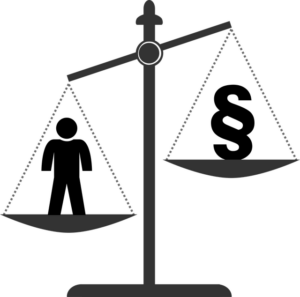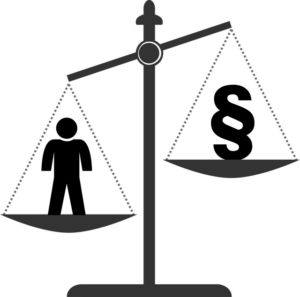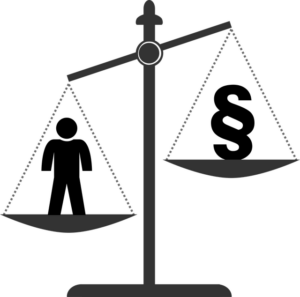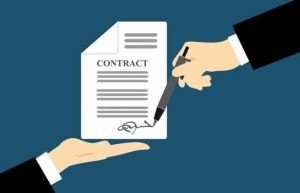Defamation is a serious issue in online news publications that can cause significant damage to a person’s reputation and livelihood. With the rise of social media and the ease of online publishing, false and damaging statements can spread quickly, resulting in irreparable harm to the individual or organization targeted.
In such instances, legal recourse may be necessary to hold the responsible parties accountable for their actions and seek compensation for the damages caused. This article will explore the various types of defamation that individuals and organizations may encounter in online news publications, the legal elements required to prove defamation, and the available legal recourse for those who have been defamed.
In addition, we will discuss the importance of choosing the right legal strategy, the statute of limitations for defamation claims, media liability laws, and the benefits of working with a legal professional to protect one’s reputation online. Finally, we will provide tips for individuals and organizations to safeguard their online reputation and minimize the risk of defamation.
Key Takeaways
- Defamation in online news publications can cause significant harm to a person’s reputation and livelihood.
- Legal recourse, such as civil lawsuits or criminal prosecution, may be necessary to hold responsible parties accountable and seek compensation.
- Media liability laws hold media outlets accountable for accuracy and ethics in their reporting.
- Protecting one’s online reputation involves monitoring online presence, responding to defamatory content, and building a positive online image through high-quality content and appropriate language and tone.
Types of Defamation
The categorization of defamation into various types is a crucial aspect of comprehending the legalities surrounding false and damaging articles in online news publications.
The two primary forms of defamation are libel and slander.
Libel is a written or published false statement that harms a person’s reputation, while slander is an untruthful spoken statement that causes harm to a person’s reputation.
Another distinction between the two types of defamation is that libel is generally considered to be more harmful than slander.
This is because libel is permanent and can be widely disseminated, while slander is more transient and less likely to reach a large audience.
Both libel and slander can result in significant harm to a person’s reputation and can lead to legal action against the party responsible for the false and damaging statements.
Legal Elements Required to Prove Defamation
To establish a claim of defamation, certain elements must be proven in support of the plaintiff’s case. The following are the three legal elements required to prove defamation:
-
First, the plaintiff must prove that the defendant made a false statement about them. The statement can be spoken, written, or expressed through any other medium. It is important to note that opinions do not qualify as defamatory statements unless they are presented as facts.
-
Second, the plaintiff must prove that the false statement was communicated to a third party. If the statement was made in a private conversation, it does not qualify as defamation. However, if the statement was communicated to a group of people, even if it was not made publicly, it can still be considered defamation.
-
Third, the plaintiff must prove that the false statement caused harm to their reputation. This harm can be in the form of financial loss, emotional distress, or damage to their social standing. It is important to note that the harm must be caused directly by the false statement and not by any other factors.
Meeting these legal elements is crucial in proving a claim of defamation. Failure to prove any of these elements would result in the dismissal of the plaintiff’s case.
Available Legal Recourse
One possible course of action for individuals who have been the subject of harmful and untrue statements is seeking redress through the legal system. There are several legal recourses available to individuals who have been defamed in online news publications. These include:
| Legal Recourse | Description |
|---|---|
| Civil Lawsuit | A civil lawsuit involves seeking monetary damages from the individual or entity that published the defamatory statement. The plaintiff must prove that the statement was false, caused harm to their reputation, and that the defendant acted with negligence or malice. |
| Retraction or Correction | In some cases, a retraction or correction may be issued by the publication. This may be a voluntary action by the publication or may be ordered by a court. A retraction or correction may not completely repair the damage done to the plaintiff’s reputation, but it can help to mitigate the harm. |
| Criminal Prosecution | In some jurisdictions, defamation is a criminal offense. Individuals who have been defamed may choose to pursue criminal charges against the individual or entity responsible for publishing the defamatory statement. The burden of proof is higher in criminal cases, as the plaintiff must prove that the defendant acted with actual malice or intent to harm. |
It is important to note that legal recourse for defamation can be a lengthy and costly process. Individuals who are considering pursuing legal action should consult with a qualified attorney to assess the strength of their case and the potential costs and benefits of pursuing legal action.
Choosing the Right Legal Strategy
When it comes to choosing the right legal strategy for defamation, there are several considerations that individuals and businesses must take into account.
One key factor is the difference in legal recourse available to individuals versus businesses.
Another important consideration is weighing the potential costs and benefits of pursuing legal action.
It is crucial to carefully evaluate these factors to determine the most appropriate course of action.
Considerations for Individuals vs. Businesses
Individuals and businesses face distinct considerations when seeking legal recourse for false and damaging articles published in online news publications. An individual may be more emotionally invested in the matter and may prioritize vindication over financial compensation.
In contrast, a business may be more concerned with protecting its reputation and mitigating potential financial losses resulting from the negative publicity. Additionally, the nature of the false and damaging article may differ for individuals and businesses. An individual may be the subject of a personal attack or false accusation, while a business may be falsely accused of engaging in illegal or unethical practices.
When considering legal options, individuals and businesses must also take into account the potential costs and benefits of pursuing legal action. For individuals, the cost of legal fees and the time commitment required may be significant, and the potential financial compensation may not be sufficient to offset these costs.
In contrast, a business may have greater financial resources to invest in legal action and may stand to gain more in terms of financial compensation or reputational damage control. Ultimately, the decision to pursue legal action will depend on a variety of factors, including the severity of the false and damaging article, the potential costs and benefits of legal action, and the individual or business’s goals in seeking recourse.
Weighing the Costs and Benefits
Assessing the potential costs and benefits of pursuing legal action can be a complex decision-making process that requires careful consideration of a variety of factors. For individuals, the cost of pursuing legal action can be a significant burden, including court fees, attorney fees, and the time and emotional energy required to navigate the legal system. On the other hand, for businesses, the cost of not pursuing legal action can be even greater, including damage to reputation, loss of customers, and decreased revenue.
It is important to weigh the potential benefits of pursuing legal action against the potential costs. Here are three sub-lists to consider:
Benefits of pursuing legal action:
- Holding the news publication accountable for false and damaging reporting
- Protecting reputation and image
- Potentially receiving compensation for damages
Costs of pursuing legal action:
- High legal fees, including court costs and attorney fees
- A lengthy and emotionally taxing legal process
- The potential for negative publicity and further damage to reputation if the case is not successful
Risks of not pursuing legal action:
- Further damage to reputation and image
- Potential loss of business and revenue
- A lack of accountability for false reporting.
Ultimately, the decision to pursue legal action should be made based on a thorough analysis of the potential costs and benefits, as well as a consideration of the specific circumstances and goals of the individual or business.
Statute of Limitations
The Statute of Limitations plays a crucial role in determining the timeframe within which a defamation claim can be filed against an online news publication. In general, the statute of limitations for defamation varies from state to state, ranging from one to six years. In some states, the statute of limitations may also depend on whether the defamation is considered to be libel or slander.
It is important for plaintiffs to be aware of the statute of limitations in their state and to file a claim within the allotted time frame, as failure to do so may result in the dismissal of the case.
One of the primary reasons for having a statute of limitations is to ensure that cases are resolved in a timely manner. This helps to prevent legal disputes from dragging on indefinitely, which can be costly and time-consuming for all parties involved.
Additionally, a statute of limitations provides defendants with certainty and protection against stale claims, as evidence may become more difficult to obtain and memories may fade over time. While the specific time frame for filing a defamation claim may seem restrictive, it is ultimately intended to balance the interests of both plaintiffs and defendants and to promote the efficient administration of justice.
Media Liability Laws
Moving on from the statute of limitations, media liability laws are also an important factor to consider when seeking legal recourse for false and damaging articles in online news publications. These laws aim to hold media outlets accountable for the content they publish, ensuring that they are held to a high standard of accuracy and ethics.
One of the key aspects of media liability laws is the concept of defamation. Defamation is the act of making false statements that harm the reputation of an individual or organization. In the context of online news publications, defamation can take many forms, such as publishing false information, distorting facts, or making unfounded accusations.
To protect against defamation, media outlets are required to exercise due diligence in verifying the accuracy of their sources and information. Failure to do so can result in legal action being taken against them.
-
Media liability laws are designed to ensure that media outlets are held accountable for the content they publish.
-
These laws aim to protect individuals and organizations from false and damaging statements that harm their reputation.
-
Defamation is a key aspect of media liability laws.
-
Media outlets are required to exercise due diligence in verifying the accuracy of their sources and information to protect against defamation.
Working with a Legal Professional
When it comes to working with a legal professional, finding the right attorney is crucial. This involves researching and evaluating potential candidates based on their experience, expertise, and reputation.
In addition, preparing evidence and documentation ahead of time can help streamline the legal process and ensure a successful outcome.
Finding the Right Attorney
Securing a suitable legal representative is a crucial step for individuals seeking to pursue legal action against a news publication for publishing false and damaging articles. The process of finding the right attorney can be daunting and overwhelming, but there are several factors to consider.
Firstly, it is important to look for an attorney who specializes in defamation law and has a proven track record of successfully litigating similar cases. This will ensure that the attorney has the necessary expertise and experience to handle the complexities of defamation cases.
Secondly, it is advisable to choose an attorney who is familiar with the jurisdiction where the case will be heard. This is because defamation laws vary from state to state, and an attorney who is well-versed in the laws of the relevant jurisdiction will be better equipped to navigate the legal system.
Additionally, it is essential to choose an attorney who is responsive, communicative, and willing to work collaboratively with the client. This will help to ensure that the client is kept informed throughout the legal process and is able to make informed decisions about their case.
Preparing Evidence and Documentation
One critical aspect of pursuing legal action against a media outlet involves compiling and organizing evidence and documentation to support the allegations of harm and injury caused by the published content. This process can be challenging and time-consuming, but it is essential to build a strong case and increase the chances of winning a defamation lawsuit.
The evidence should be relevant, reliable, and admissible in court, and it must demonstrate that the published content was false and damaging, that it caused harm to the plaintiff’s reputation or financial standing, and that the defendant acted with malice or negligence.
To prepare evidence and documentation, plaintiffs should consider the following:
- Collecting copies of the published content, including articles, images, videos, and social media posts.
- Gathering witness statements from individuals who were affected by the published content, such as friends, family members, coworkers, and clients.
- Obtaining expert opinions from professionals who can attest to the falsity or harmfulness of the published content, such as journalists, lawyers, and psychologists.
- Keeping records of any communications with the media outlet, such as emails, letters, or phone calls, that relate to the published content and its impact.
- Tracking any damages suffered as a result of the published content, such as lost income, lost clients, or emotional distress.
By following these steps, plaintiffs can build a comprehensive case that supports their claims of defamation and increases their chances of receiving compensation for the harm caused by false and damaging online news publications.
Tips for Protecting Your Reputation Online
In light of the increasing influence of online communication, protecting one’s reputation on the internet has become a critical concern.
One key approach is to monitor online presence, which involves keeping track of personal information and content that is being shared online.
Responding to defamatory content is also important, and can involve taking legal action or using other strategies to correct false information.
Finally, building a positive online image can be achieved through various means, such as creating high-quality content and engaging with others in a professional and respectful manner.
Monitoring Online Presence
Monitoring an individual’s online presence is a crucial step in protecting their reputation from false and damaging articles published in online news publications. With the ease of access to the internet and social media, it is important to stay vigilant and aware of what information is being shared about oneself online. By monitoring their online presence, an individual can take proactive steps to address any false or damaging information that may be circulating, and work towards cleaning up their online reputation.
Here are three ways an individual can monitor their online presence:
-
Set up Google Alerts: By setting up alerts for their name or any other relevant keywords, an individual can receive notifications whenever new content is published online that mentions them. This allows them to stay on top of any potential issues and respond quickly if necessary.
-
Regularly check social media: Social media platforms are often a source of false or damaging information. By regularly checking their profiles, an individual can ensure that they are aware of any negative comments or posts and can take appropriate action to address them.
-
Use online reputation management tools: There are a variety of tools available that can help individuals monitor and manage their online reputation. These tools can track mentions of their name or brand across various platforms and provide insights on how to improve their online image.
Responding to Defamatory Content
In our previous subtopic, we discussed the importance of monitoring online presence to detect any defamatory content that may harm an individual’s reputation. However, detecting defamatory content is only the first step in protecting oneself from false and damaging articles.
The next step is to respond to the defamatory content and take legal recourse if necessary. When responding to defamatory content, it is important to remain calm and objective. Responding in an emotional or aggressive manner may further damage one’s reputation and provide the author of the defamatory content with ammunition to continue their attacks.
Instead, a measured and professional response should be crafted, addressing the false statements made and providing evidence to refute them. This response can be posted on the same forum or platform where the defamatory content was published, or it can be sent directly to the publisher or author. If the defamatory content is particularly damaging and has caused significant harm to an individual’s reputation, legal action may be necessary.
The law provides remedies for defamation, including damages for harm caused to reputation and an injunction to prevent the publication of any further defamatory content. However, pursuing legal action can be a complex and time-consuming process, requiring the assistance of legal professionals who specialize in defamation cases.
Building a Positive Online Image
Developing a favorable digital reputation is an essential aspect of managing one’s online presence. In today’s digital age, where information travels at lightning speed and can reach a vast audience, it is crucial to ensure that your online image is positive and reflects your true self.
Here are three essential steps that individuals can take to build a positive online image:
-
Manage Social Media Profiles: Social media platforms can be excellent tools for networking and connecting with others. However, it is essential to manage your profiles carefully. This includes regularly updating your profiles with accurate and up-to-date information, using appropriate language and tone, and avoiding controversial or sensitive topics.
-
Create High-Quality Content: The content you create and share online can significantly impact your digital reputation. Ensure that the content you produce is of high quality, informative, and relevant to your target audience. Additionally, ensure that your content is free of errors and typos, as this can reflect poorly on your professionalism and credibility.
-
Monitor Your Online Reputation: It is essential to monitor your online reputation regularly. This includes regularly searching for your name on search engines, social media platforms, and other online channels. If you come across any negative or damaging content, address it immediately and take steps to have it removed or corrected.
By taking proactive steps to manage your online reputation, you can ensure that your digital image is positive and reflects your true self. Building a positive online image is essential in today’s digital age. By managing your social media profiles, creating high-quality content, and monitoring your online reputation, you can ensure that your digital image is positive and reflects your true self. By taking proactive steps to manage your online reputation, you can protect yourself against defamatory content and ensure that your digital reputation remains intact.
Frequently Asked Questions
What is the difference between defamation and freedom of speech?
Defamation and freedom of speech are two concepts that are often in conflict with each other.
Defamation refers to a false statement that harms the reputation of an individual or organization.
On the other hand, freedom of speech is the right to express one’s opinions and ideas without fear of censorship or retaliation.
While freedom of speech is a fundamental right protected by the First Amendment of the United States Constitution, it is not an absolute right.
The law recognizes that there are circumstances in which speech can cause harm and in those instances, it is not protected.
Defamation is one such instance where freedom of speech is not protected.
In order to determine whether a statement constitutes defamation, a court will consider whether the statement is false, whether it was made with malice, and whether it caused harm to the reputation of the individual or organization.
Can a person be sued for sharing someone else’s defamatory post on social media?
In general, a person may be held liable for sharing someone else’s defamatory post on social media if they knew or should have known that the statement was false and could harm the reputation of the person being defamed. This is because republication of a defamatory statement can also constitute defamation.
However, there are certain defenses that may be available, such as the fact that the person who shared the post was not the original author and did not add any additional defamatory statements.
The specific circumstances of each case will determine whether or not a person can be sued for sharing someone else’s defamatory post on social media.
Is it possible for a company or organization to be defamed?
Defamation is a legal concept that involves the communication of false information about a person or entity that causes harm to their reputation.
While defamation is typically associated with individuals, it is also possible for a company or organization to be defamed.
In order to prove defamation, the company or organization must show that the false information was communicated to a third party, that it was about the company or organization, and that it caused harm to its reputation.
Defamation can negatively impact a company’s business relationships, sales, and overall image.
As such, it is important for companies to take steps to protect their reputation and pursue legal action if necessary.
What happens if the person accused of defamation cannot pay damages?
In situations where a person accused of defamation cannot pay damages, the plaintiff may be left with limited options for recourse.
In some cases, the plaintiff may be able to garnish the defendant’s wages or seize assets to satisfy the judgment.
However, if the defendant has no assets or income, the plaintiff may not be able to recover any damages.
Additionally, some defendants may file for bankruptcy, which could discharge their obligation to pay damages.
In such cases, the plaintiff may have to accept that they cannot recover any damages and may need to consider other forms of redress, such as seeking a retraction or correction of the false statements.
Ultimately, the ability to recover damages may depend on various factors, including the defendant’s financial situation, the strength of the plaintiff’s case, and the legal system in which the case is being heard.
How long does it take for a defamation case to be resolved in court?
The resolution time for a defamation case in court can vary depending on various factors such as the complexity of the case, the number of witnesses involved, and the availability of evidence. Generally, defamation cases can take several months or even years to be resolved.
The court process involves various stages such as filing a complaint, discovery of evidence, pre-trial motions, trial, and appeal. Each stage takes time, and delays may occur due to the backlog of cases in the court system.
The length of time it takes to resolve a defamation case can also depend on the jurisdiction and the judge’s case management style. However, parties can agree to settle out of court, which can significantly reduce the time and costs associated with a defamation case.
Conclusion
Defamation in online news publications can have serious consequences for individuals and businesses alike. It is important to understand the legal elements required to prove defamation and the available legal recourse.
There are two types of defamation: libel (written) and slander (spoken). To prove defamation, the plaintiff must show that the statement was false, caused harm, and was made with negligence or malice.
Legal recourse for defamation includes filing a lawsuit for damages or seeking a retraction or correction from the publisher. Choosing the right legal strategy is crucial, as there are different statutes of limitations and media liability laws that vary by jurisdiction. Working with a legal professional can help navigate these complexities and protect one’s reputation online.
To protect one’s reputation online, it is important to monitor and address any false or damaging articles promptly. This can include requesting removal of the content or publishing a response to correct any inaccuracies. It is also important to be mindful of what is shared online and to avoid making defamatory statements oneself.
By understanding the legal recourse available and taking proactive steps to protect one’s reputation, individuals and businesses can mitigate the impact of defamation in online news publications.














































